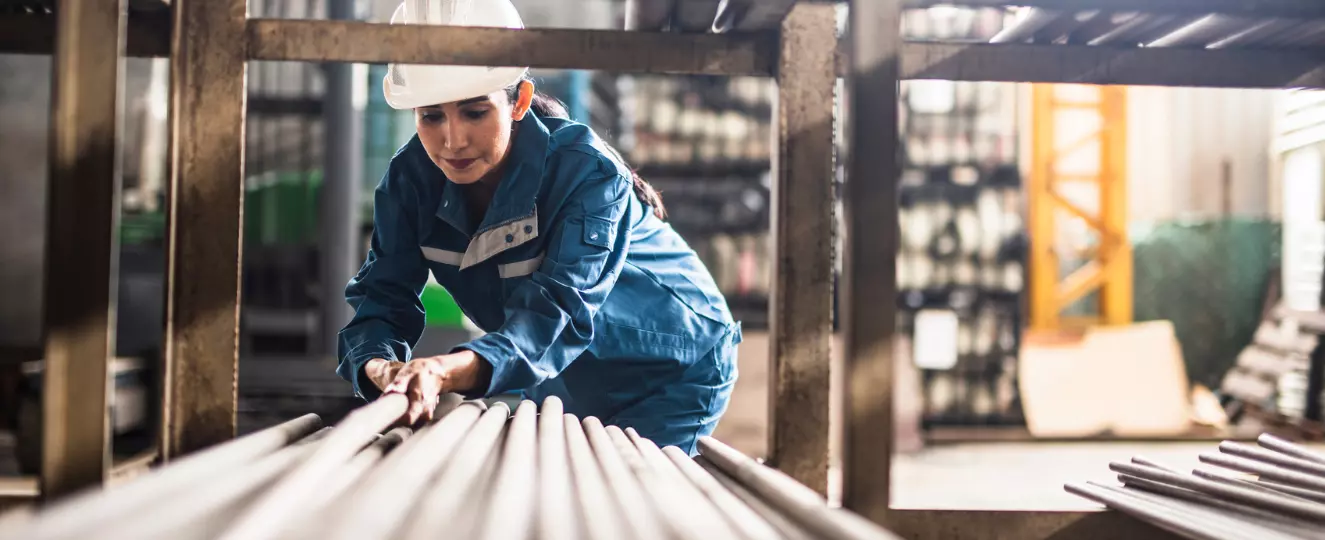
What You Need to Know About Violation of Specific Safety Requirement (VSSR) Penalties in Ohio
Ohio employers have a duty to provide their employees with a workplace that is free from known dangers that could harm employees. Unfortunately, injuries can and do happen, even in safe workplaces. When employers think about workplace safety and compliance, oftentimes Occupational Safety and Health Administration (OSHA) regulations come to mind. If an employer fails to comply with OSHA regulations, OSHA may issue citations and significant penalties.
However, after a workplace injury, issues related to OSHA compliance and/or violations are not an employer’s only concern. Many employers are completely unaware that they also have safety obligations to their employees under the Ohio Administrative Code (OAC), which pertains to safety in workshops, factories, and the construction industry. The OAC contains safety provisions that are similar to, but with variations from, OSHA safety requirements. As a result, if an employer fails to comply with the safety regulations contained in the OAC, and a safety violation causes a workplace injury, they can face additional fines outside of OSHA, issued by the Industrial Commission of Ohio.
Violation of Specific Safety Requirements – What is a VSSR?
After an employee has an allowed workers’ compensation claim, they are able to receive compensation and medical treatment under the claim. However, if an injured worker believes that there is evidence that a safety violation occurred due to the employer’s failure to comply with a specific safety requirement, the injured worker has up to a year after the date of injury to file an Application for a Violation of a Specific Safety Requirement (VSSR) against the employer. The VSSR is akin to punitive damages, and it is a penalty against the employer.
How much does a VSSR penalty cost?
If the Industrial Commission of Ohio finds that a safety violation did occur, they have the ability to give an injured worker a VSSR award, which can range from 15-50% of the total amount of paid compensation in the claim over the lifetime of the claim. Depending on the severity of the underlying injury, sometimes VSSR penalties can be in the six-figure range. Even worse, if an employer has two or more VSSR violations occurring within a 24-month period, the Industrial Commission of Ohio can impose an additional penalty of up to $50,000. Worse yet, VSSR’s are not covered by any business liability insurance policies, and they are also not covered under an employer’s state-fund workers’ compensation policy. Given the significant penalties and direct out of pocket costs that employers can face, it is important for employers to understand VSSR liability.
What is the VSSR process?
The safety requirements at issue in a VSSR action can be found in the Ohio Administrative Code Chapter 4123:1, which provides specific requirements for employers to follow in relation to workplace safety. If the injured worker can prove that: 1) the employer violated one or more of these safety requirements, and 2) the violation proximately caused the workplace injury, then the Industrial Commission of Ohio will penalize the employer by requiring payment of an additional sum for a VSSR award.
Once an injured worker files a VSSR application against an employer, the application is sent to the Ohio Bureau of Workers’ Compensation (BWC) Safety Violation Investigation Unit (SVIU) for investigation. After the VSSR is filed, the employer has 30 days to file a response with the Industrial Commission of Ohio. After the employer files a response, the BWC then assigns a special investigator to the case and requests additional information from the employer regarding the specifics of the injury, witnesses, employer training, and the equipment used at the time of the injury.
The BWC investigator then will conduct an on-site visit with the employer and an interview with the injured worker. It is important for the employer to review and compile all safety documentation with the assistance of counsel prior to the on-site safety investigation. Employers should also be sure that counsel is present during the on-site investigation. If the injury also led to an OSHA investigation, the employer will need to disclose the OSHA documentation to the special investigator. If an OSHA citation already occurred, the Industrial Commission can use the OSHA violation as persuasive evidence in the workers’ compensation claim, but the Industrial Commission is not bound by OSHA findings.
After all onsite visits and interviews take place, the BWC investigator then prepares a neutral, fact-finding report to submit to the Industrial Commission claim file concerning the factual elements of the alleged VSSR claim. The Industrial Commission then conducts a prehearing conference with both parties, and if the parties cannot reach a settlement, then the case proceeds to a hearing on the merits before the Industrial Commission of Ohio. If an employer intends to defend a VSSR, they also should consider subpoenas for witnesses, retaining an expert witness related to safety, and they should also consider using a court reporter for the hearing in the event that further appeal is necessary. An employer can always choose to settle a VSSR in lieu of proceeding with the hearing, but if the employer wants to settle, the settlement paperwork needs to be signed and in the Industrial Commission claim file prior to the date of hearing.
VSSR liability can be a serious and expensive problem for employers. If your company faces VSSR liability, it is best to bring counsel in as soon as possible. For more information about VSSR liability, contact Bricker Graydon’s Labor and Employment team.

